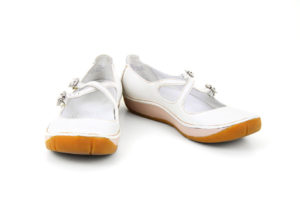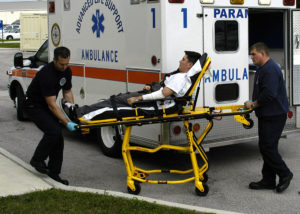How to prevent lower back pain is a common concern of nurses nowadays. It is one of the most reported occupational health problems of nurses especially during their retirement years. Self-medicating with over-the-counter pain relievers will offer relief but it is more important to follow lifestyle changes to prevent occurrence and reoccurrence of lower back problems in the future.
Here are some of the proven ways of how you can prevent and manage low back pain:
1. Exercise To Strengthen The Support Of Your Back Muscles.

Exercising prevents and reduces back pain. However, if your back pain persists for more than six weeks, consult your doctor first before exercising.
Some exercise routines you can follow to strengthen back muscles include back extensions, knee rolls and bottom to heels stretch. Doing pilates or yoga is also beneficial in reducing the risk of back strain.
Also Read: 10 Best Exercise Routines to Make You a Better Nurse
2. Maintain Good Body Posture

Always straighten your back when standing and sitting. When standing, keep your chest out and shoulder down to relax your back muscles. This way, you can easier maintain a straight posture.
When sitting, avoid slouching. You may also place a pillow behind your lower back area for more posture support.
3. Watch Your Weight

When you’re overweight, the extra pounds shift the center of gravity in your body. As a result, more pressure will be felt in the lower back area and this can lead to back strain.
If you are overweight, try to manage your weight through exercise and proper diet. Being physically fit reduces the risk of back pain.
4. Wear A Comfortable Pair Of Shoes.

Choose low-heeled and non-slip closed shoes. Ensure that the arch support of the shoes is fit for your sole. A good pair of shoes improves body alignment to achieve good posture and prevent lower back pain.
There is a wide variety of shoes nurses can use for work. Some shoes are even made just for nurses.
When getting a pair, ensure that it fits your feet well. The sole should be well-cushioned for additional comfort.
Also Read: Best Shoes for Nurses: The Ultimate Guide
5. Practice Proper Body Mechanics

Use proper body mechanics whenever you will lift or position a patient and when moving heavy equipments.
To remember and practice proper body mechanics in your daily activities all the time, you only need to keep three things in mind – bend at your hips and knees instead of your waist, set your foot apart to maintain a stable foundation of support and keep your neck, back, pelvis and feet aligned when turning or moving.
By observing proper body mechanics in doing daily nursing tasks, you can reduce the risk of back strain and other occupational-related injuries that can be encountered while at work.
6. Eat a Healthy Diet

Maintaining a healthy diet is usually hard for nurses. They skip meals and overload themselves with caffeine. When they have the time to eat, they usually eat fast food meals and sweets.
Poor eating habits contribute to weight gain without sufficiently meeting the body’s nutritional needs. Lack of essential minerals in diet like calcium and potassium can increase the risk of lower back problems.
Maintaining a healthy diet is one of the proven ways to prevent lower back pain. Eat more fruits and vegetables especially in-between meals. Choose foods that are rich in calcium like dairy products and green leafy vegetables.
Also Read: 10 Healthiest Breakfast Ideas for Busy Nurses
7. Pull Rather Than Push When Moving Equipments

The muscles you will use in pulling an object are stronger than the muscles you will use in pushing. Pulling reduces the risk of back strain and makes proper body mechanics easier to follow.
When pushing an object, the muscles at your back are making the effort to move an object forward. Repeatedly pushing an object leads to back strain and exhaustion.
On the other hand, the muscles in your arms are involved when pulling an object. Using your biceps and triceps enables you to have more strength in moving an object.
8. Lift Wisely and With Caution
If assistive mechanical devices are not available in your facility, lifting equipments and patients can be a tedious task already. Before lifting, plan your actions well so you can anticipate if you need help.
Keep your head up and avoid twisting. If you lean sideways while lifting especially when your back is bent, you are more likely to suffer from back strain. To prevent this, keep the load close to your waist and walk straight ahead when carrying heavy equipments.
9. Evaluate Your Sleeping Position

Most reports of back pain have been correlated with poor sleeping positions. Sleeping flat on your back is not recommended as your body’s weight pressure is concentrated in the spine.
The best sleeping position is to sleep sideways. But, if you are used to sleeping on your stomach, put a small pillow under your lower abdomen to relieve pressure from your back.
Getting a supportive mattress and pillow is also helpful especially if you frequently change sleeping positions as you sleep. Most importantly, ensure that you are getting enough sleep everyday so you can give more time for your muscles to relax and gain strength.
10. Have a Positive Outlook at Work

When you are stressed, your muscles are more tense. This could lead to chronic back pain especially if you do not have good posture all the time. It is almost impossible to eliminate stress if you are a nurse but you can handle it in a better way if you maintain a positive outlook at work.
When you can properly handle stress at work, you can be more efficient and attentive. Your body will develop adaptive mechanisms whenever under intense stress and pressure to avoid stress-related muscle strain and back pain. You can do this by practicing stress-reduction activities like yoga, meditation and Tai chi. You can also do deep breathing exercises, guided imagery reflection and biofeedback therapy.
You can prevent and manage low back pain with simple lifestyle changes. To know more ways on how to prevent lower back pain, ask your senior nurses for advice. Remember that you must always prioritize taking care of your health well so you will have more energy in providing nursing care to your patients at work.




















